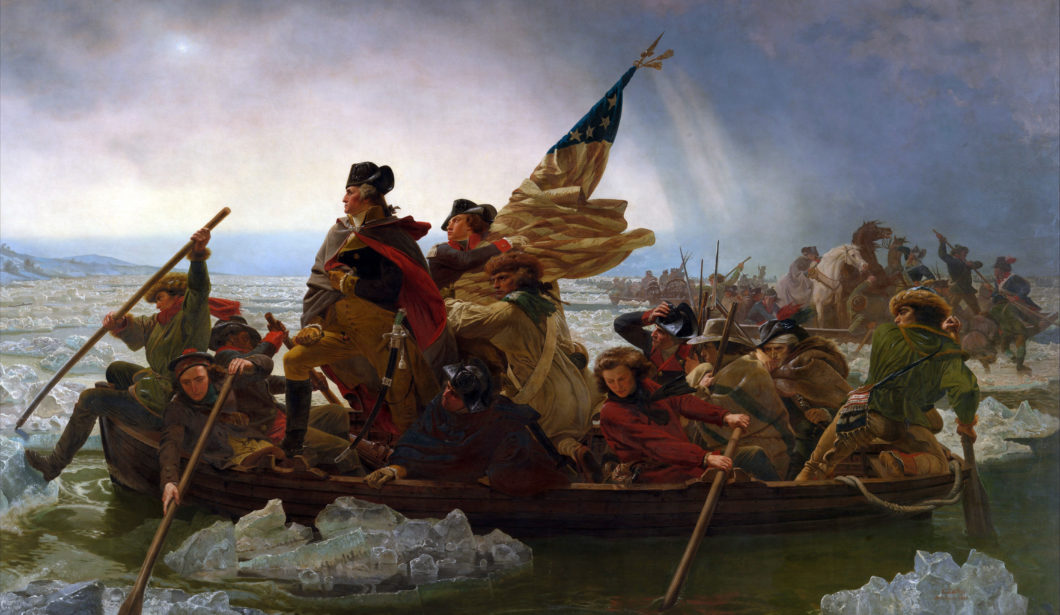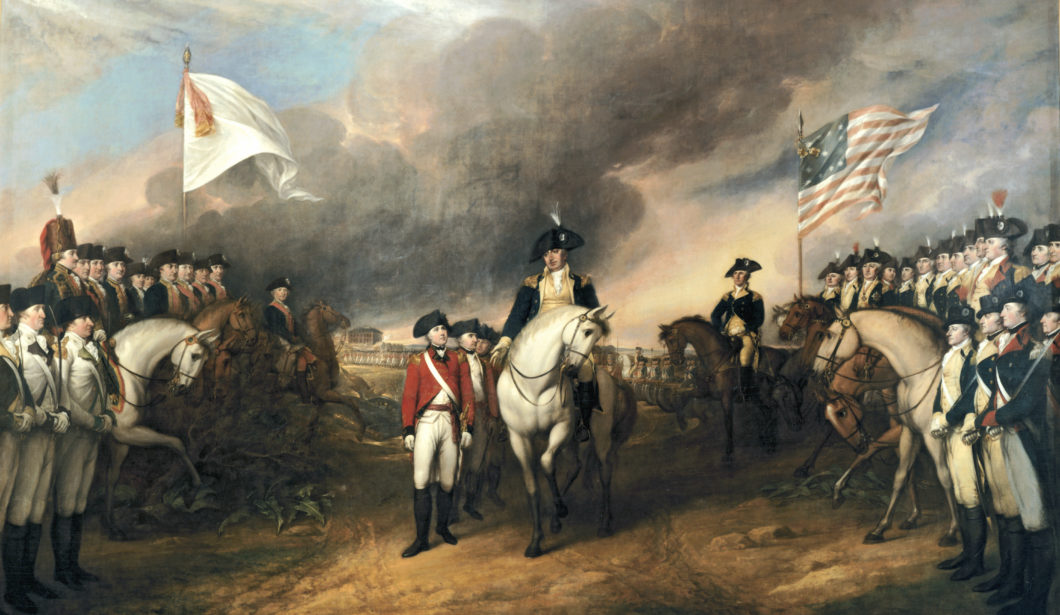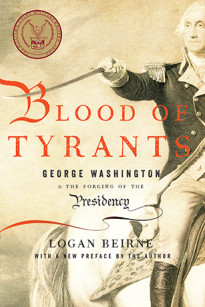By 1781, it had been years since Washington had won any great victory on the battlefield, but he was still adulated. As he orbited around New York City, hoping in vain to recapture it, he fought only small skirmishes. But his esteem was deeper and more subtle than that of a coach with a winning scorecard: he was the personification of the revolutionary struggle. Washington did not have many victories, but after nearly six years of battle, he still held the hearts of the people.
Americans credited his “good destiny and consummate prudence [for having] prevented want of success from producing want of confidence on the part of the public.”
They praised not only his bravery and leadership, but also his impeccable character and astute handling of the messy war. “He was received with that heart felt exultation, which superior merit alone can inspire, after having, in his progress through the states, been honoured with every mark of affection and esteem which they conceived were due the man, the whole continent looked up to for safety and freedom.”
And he soon won that freedom for them.
In a strange twist of fate, a failure of communication between Washington and his Southern Army proved crucial to winning the war. The Southern Army sent a message to Washington requesting that he support their Yorktown assault, while Washington simultaneously sent a message outlining his objective of retaking New York City. Only one reached its intended recipient. Fortuitously, Washington’s plan was intercepted, putting Clinton on high alert for an attack on New York and thus unwilling to divert troops to reinforce Cornwallis. But while Clinton was fretting over the north, Washington had received the Southern Army’s request for support. Having grown highly adaptable, he quickly devised another sneak attack back in his home state.
Before he left his perch outside New York, Washington concocted a “judiciously concerted stratagem” to throw Clinton into alarm and prompt him to call back part of his forces from Virginia in order to defend his New York garrison. Washington—this time intentionally—began cultivating false information about a fake plan to attack Manhattan via Staten Island. He left a small skeleton army behind in order to create the illusion of an invasion force, ordering his men to pitch tents, keep the fires burning, and lay pontoons so that Clinton might believe they were preparing for an amphibious assault. His ruse set, Washington then ordered as many men as he could spare to march southward.
However confused they were by his intentions, the troops held Washington in such high esteem that they placed “the fullest confidence” in his “capacious mind, full of resources.” The soldiers marching south had no idea where they were going or where they would fight, but they would follow their commander unquestioningly, trusting in the plans he held “under an impenetrable veil of secrecy.”
Clinton had no idea of Washington’s true intentions until the Continental Army had already marched all the way through New Jersey and crossed the Delaware River. Washington worried that his plan would still fall apart. He was very much dependent on French naval support to block both Clinton’s reinforcements and Cornwallis’s retreat.
A

A
The American Revolution had become a world war, with the French forces harassing the British from the Caribbean to Egypt to India.
While such far-flung warfare indirectly aided the Americans by diverting British power, the Americans viewed the situation more myopically: they wanted the French to be directly involved in their fight. With only a small window of opportunity, the French agreed to make a detour to the waters surrounding Yorktown. Washington could only hope they would hold true to their word.
Winning the race, twenty-four French ships took up defensive positions in time to repel the nineteen British rescue warships that had finally been sent from New York City. “So unexpected a naval superiority on the side of the enemy—which far exceeded everything we had in prospect—was not a little alarming,” wrote a stunned Clinton, “and seemed to call for more than common exertion to evade the impending ruin.”
Washington began pounding Cornwallis with a terrifying artillery barrage. He sent his French troops and a contingent of Americans under his trusty protégé Hamilton to confront British defensive positions. Once again, the elements came to the Americans’ aid, as a sudden storm prevented Cornwallis from fleeing northward into the night. The allied American and French forces had sealed him in.
Riding to the front line, Washington appeared almost godlike as he fearlessly dismounted his horse amidst the British fire. One of his aides, “solicitous for his safety,” suggested nervously, “Sir you are exposed here. Had you not better step a little back?” To which Washington replied, “if you are afraid, you have liberty to step back.” Washington struck a few ceremonial blows into the ground with a pickax and the Americans dug in for a siege. Finally, they were the ones attacking.
A

A
As Cornwallis and his men hunkered down within the city praying for Clinton to rescue them, the American and French forces rained metal upon their prostrate bodies. One patriot described the ships as “enwrapped in a torrent of fire . . . spreading with vivid brightness among the combustible rigging” against the night sky, “while all around was thunder and lightning from our numerous cannon and mortars.” In his eyes, it was “one of the most sublime and magnificent spectacles which can be imagined.”
The Americans marveled at the magnitude of the cannon fire hitting the town and the river beyond, sending up “columns of water like the spouting of monsters of the deep.” Cornwallis drafted his surrender in October 1781. Washington, expressing his “Ardent Desire to spare the further Effusion of Blood,” accepted the surrender on generous terms: Britain’s army at Yorktown would surrender to Washington and its navy to the French. When news of Yorktown reached Congress, they did not even have enough money to pay the messenger. But, after taking up a collection from among themselves to settle the tab, the congressmen—and the rest of America—could rejoice. Washington had finally beaten the British Empire.
After suffering 25,000 military deaths and losing more battles than they had won, the American forces had humbled the mightiest empire on earth.
This piece has been adapted from Blood Of Tyrants: George Washington & The Forging of the Presidency by Logan Beirne, available from Encounter Books.

